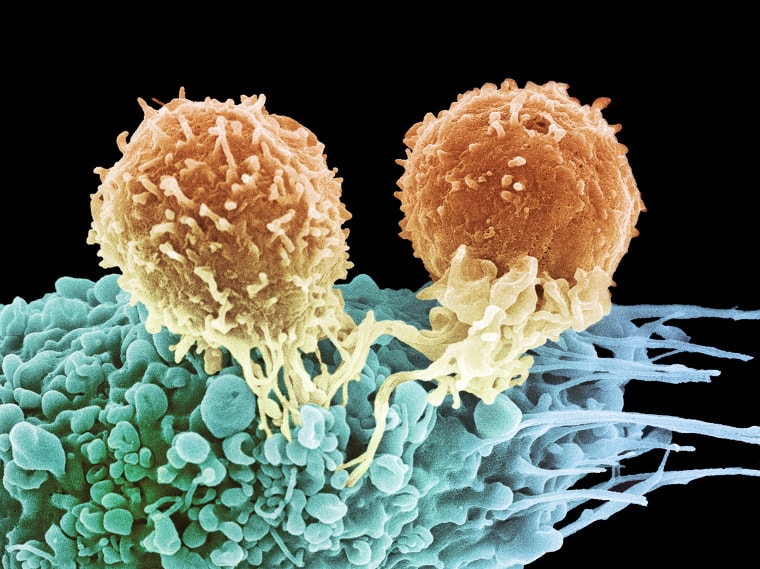It’s not uncommon for infectious diseases to pass from donors to recipients during organ transplantation, but in an extraordinarily rare case, four Britons developed breast cancer years after they received organs from the same donor, despite extensive testing, according to a recent medical report.
Three of the recipients died after the cancer spread from the organs to other areas of the body. The donor, a 53-year-old woman who died of a stroke in 2007, had no known illnesses, said the case report, published in April in the American Journal of Transplantation. Tests at the time of transplantation did not detect any evidence of breast cancer. Four of her organs — kidney, lung, liver and heart — were harvested.
"No screening test is perfect. … So there is no way to eliminate the risk to zero.”
Cancer screening is important for transplant recipients, as they are at higher risk of developing and dying of cancer compared with the general population. Recipients are given immunosuppressant drugs to prevent their bodies from attacking their new organ. The downside is that damaged cells that would normally be destroyed by the immune system are allowed to live on as well.
“There is a rationale for someone having a cancer who didn’t know they had cancer being an organ donor,” Dr. Carlo Contreras, surgical oncologist and assistant professor at the University of Alabama, Birmingham, told NBC News recently.
But he and others noted that there is limited data available to suggest that this is more than coincidence.
“The reports of cancer transmitted at the time of organ transfer to recipients are exceedingly rare,” said Dr. Steven Flamm, medical director of the liver transplant program at Northwestern Memorial Hospital. “In the U.S. there has been hundreds of thousands of organ transplants, and the number of times this has been reported are close to zero. Still, no screening test is perfect. A mammogram may not pick up a very small cancer. So there is no way to eliminate the risk to zero.”
Transplant recipients face a higher risk of cancer and reduced life expectancy. Yet cancer screening of donors is controversial because CT scans and other radiology tests could harm the organs scheduled for transplant, and the donor's family must assume the considerable expense of the tests.
Flamm, who was not involved with the case study, says transplant doctors are vigilant about warning patients of these rare possibilities.
“We have educational sessions where the entire transplantation procedure is discussed in detail, including these exceedingly rare incidences,” said Flamm. “We discuss these incidences and the risks of the procedures and the medications that will need to be taken thereafter during the evaluation intake and again at the time when the actual liver transplant is offered to the patient.”
Contreras added that surgeons and support staffers “make sure patients have had all their recommended screenings, including mammogram, colonoscopy, Pap smears and CT scans." The rigorous evaluation that these donors undergo “is not perfect because no system is perfect.”
The Organ Procurement and Transplantation Network requires interviews with the donor's next of kin and close friends to learn the donor's medical history and information about behavior that may have exposed the donor to certain diseases. Laboratory tests for infectious diseases such as HIV, hepatitis B or C, syphilis, cytomegalovirus and the Epstein-Barr virus are also routinely performed.
“Given the limited available evidence for cancer screening in solid organ transplant recipients, most recommendations generally parallel the guidelines available for the general population,” wrote Dr. Nancy Baxter of the Institute of Health Policy at the University of Toronto, who published the British case report with her colleagues.
Flamm encourages families to conduct their own research before considering organ transplantation, but also believes that the advantages of organ transplant far outweigh the risks.
“For very sick patients, such as those who need a liver or pancreas, organ donation is a last-ditch resort. The criterion to qualify for transplant is a 50 percent chance of dying within the next 90 days, so patients are willing to accept these risks.”
In the U.S, the success rates with organ transplant are high, with most liver transplants, for example, having over an 86 percent one-year survival rate. Most patients go on to live a normal life thereafter.


